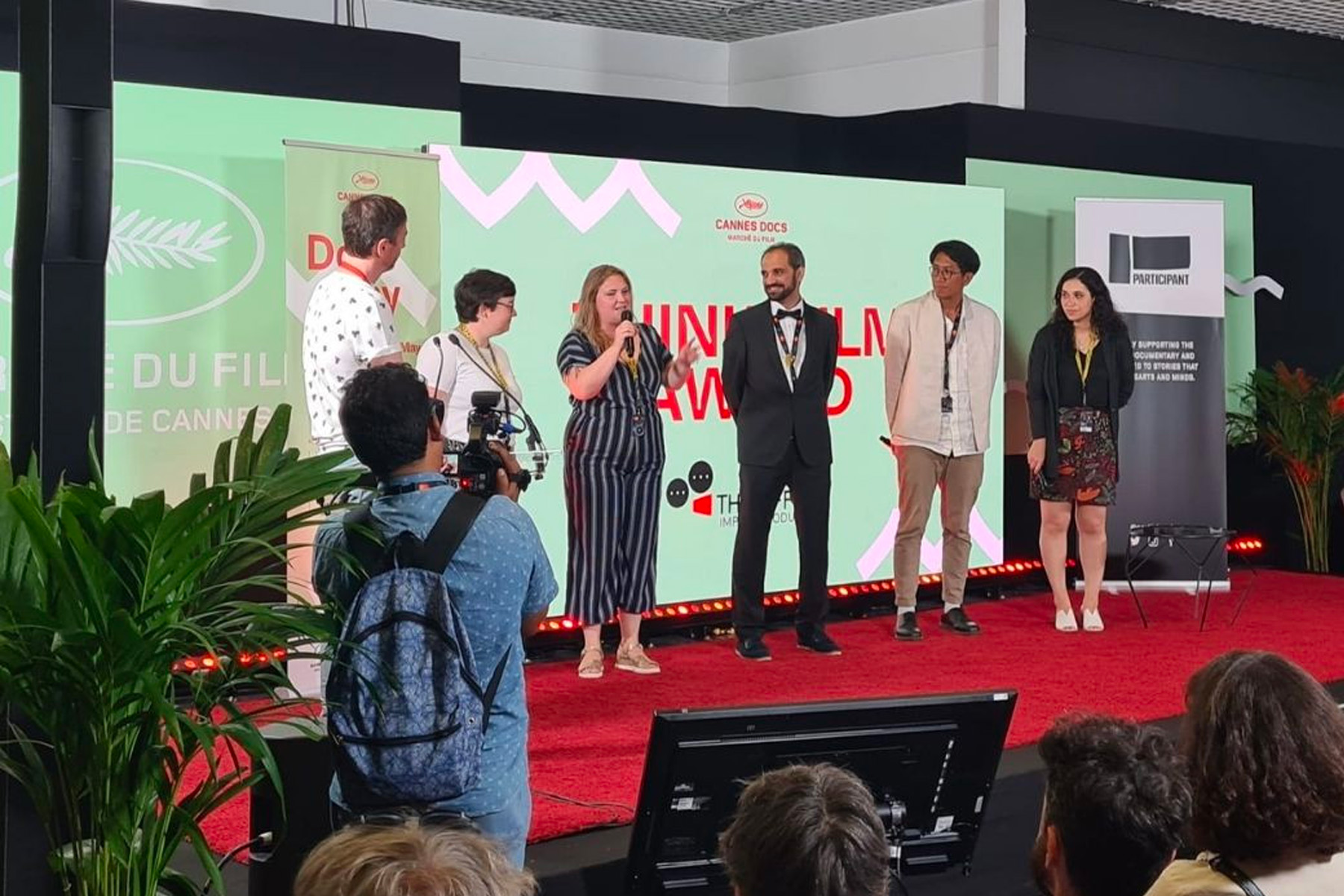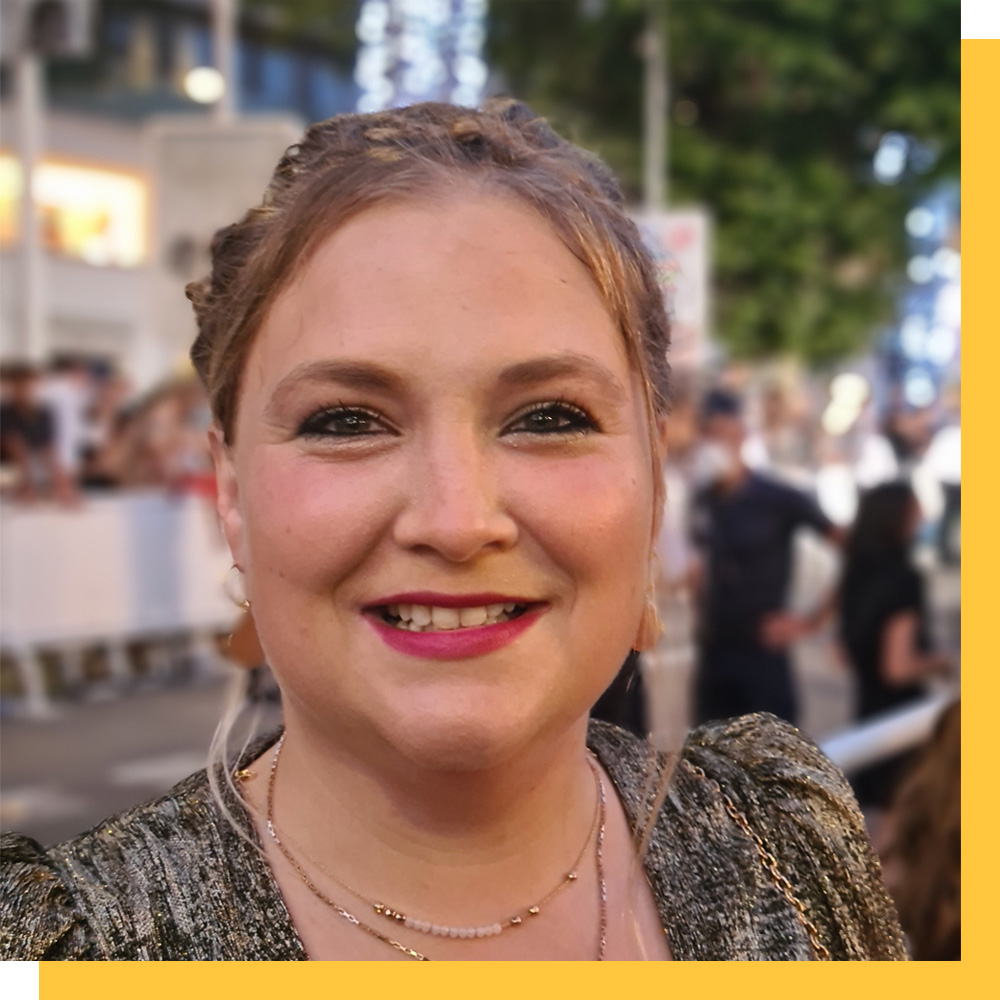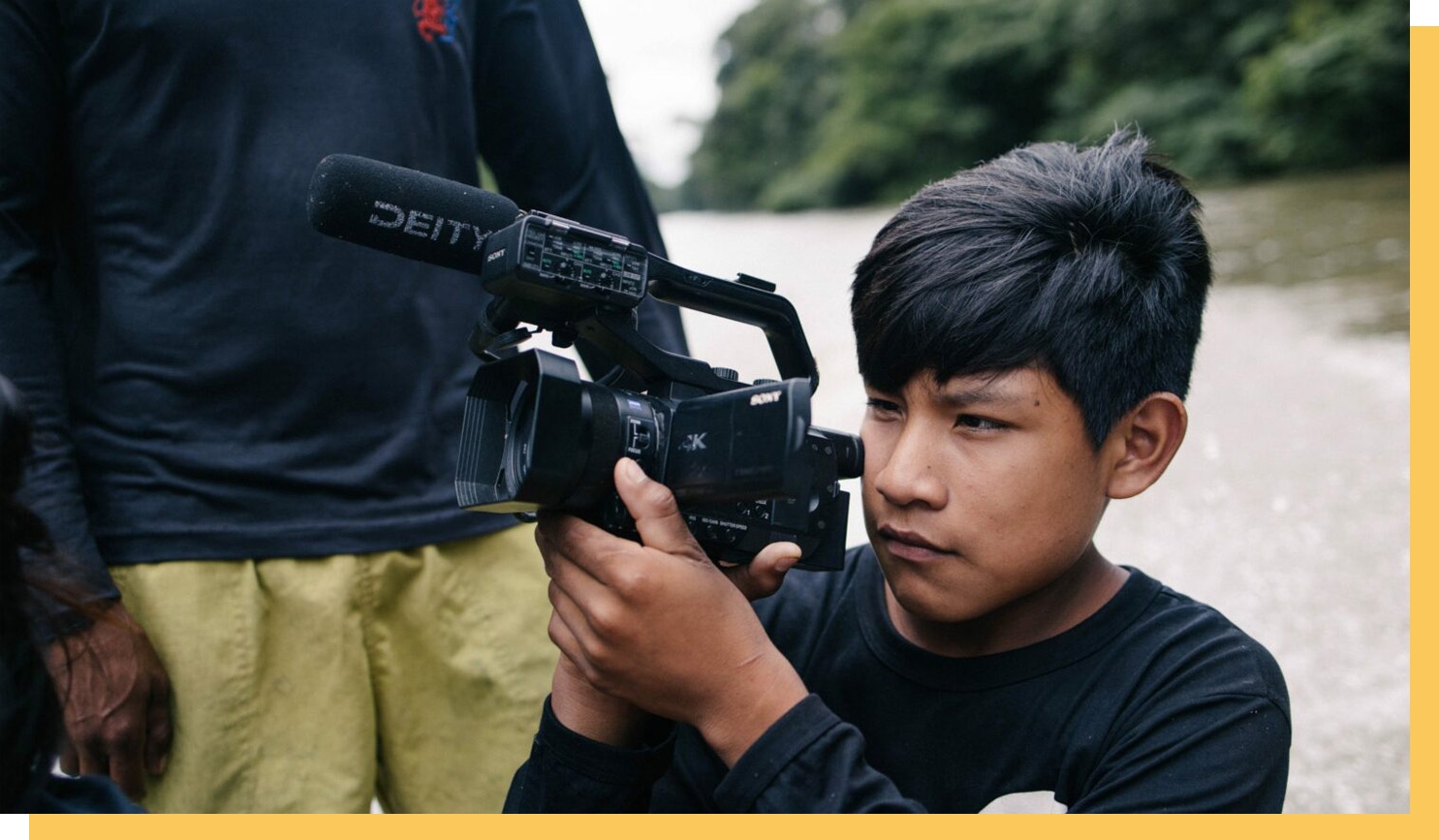Art of Change
An interview with Danielle Turkov Wilson

Oscar Winner. Emmy Winner. And now... EVPA member!
Danielle Turkov Wilson is the Founder and CEO of Think-Film Impact Production. Her vision and leadership results in films that don’t just win awards – they also achieve hugely influential real-world change. Lately, when she’s not collecting Oscars (for Navalny), she’s been breaking ground on the film industry’s first impact fund.
But perhaps what caught our eye most was the Year One Impact Report for The Territory, a documentary that follows indigenous land defenders who are courageously thwarting deforestation. The report is a must-read for anyone seeking to understand exactly how a film can make a difference – and so can people, as Danielle shows most vibrantly.
Was there an early experience that made you recognise the power of cinema to have a positive impact on people and planet?
I’d just finished my university studies, it was the global financial crisis at that time, and I wasn’t really sure what I wanted to do with my life. I ended up teaching English in Barcelona (in an amazing Gaudí building). Barcelona is a melting pot of artists and creatives. I met an incredible filmmaker at the time: she was 10 years older than me, an Australian, working at a production house. Her world really, really intrigued me. And she'd always choose social films to work on. That was not something I'd always engaged myself with at that point. But then, as I continued my studies, I decided to do a post-grad in human rights – and that's when everything turned around for me.
I ended up working in Brussels as an intern. After some time there, I was thinking, I love all this advocacy stuff I'm doing here, but it's very slow moving in the European Parliament. How cool would it be if I had a tool like my friend’s film?
And then my Australian friend came back to me. She said, ‘Dani, if you can get my film into the halls of power, I'll bring you to the Emmys.’ I was a bit like, Yeah, right. That's a lovely idea...
Six months later, I had it in The White House being watched in a private screening with Obama. We did a huge event, got nominated and went to the Emmys.
So that was how it all began. It was understanding that visual content has the power to move influencers in the political arena to do social good – much more powerful than a 50-page policy brief.
Does your background in policy influence your strategy in leading Think-Film Impact Production?
It really does. The nucleus of anything we do is the premise of social justice. We can reconnect people with that raw emotion you might have if you spent five years in the grains of an issue. Whether that's Transport Committee or Human Rights Committee, you need to be involved with the people behind the issue. And if you're not, it's very hard to be a successful leader.
At Think-Film, those policy, strategy and advocacy skills are fundamental. You can learn the business model of film, but to be a creative strategist and come up with really new ideas in policy that put people first is a real asset.

Can you describe how impact goals were integrated into The Territory’s creation and release?
The creatives were really the drivers. Alex, the director; Will, the producer; Sigrid, Lizzie – they were so committed to wanting the film to be born out of impact. They asked these big impact questions, even when they were in the field filming: How does the impact influence the story we're telling?
We (Think-Film) weren't a part of the team then, in the early development phase. But just to give you an example of how impact was a goal throughout: when COVID struck the production, World Wide Fund for Nature (WWF) provided cameras and training for the indigenous community to film their own scenes, which feature in the film. Members of the indigenous community have now received Emmy nominations for their photography.
We had our premiere in Copenhagen (CPH:DOX), and members of the indigenous community came there; we set up a big government meeting ahead of the World Food Summit and a lot of big events that were happening on the deforestation file. It was really a joint effort. I think the most beautiful part of this campaign is that it was indigenous-led, but it was also curated by a strong team that knew exactly how to speak the language of international diplomacy.
Part of what made The Territory magnificent is that we show the side of the loggers. They're not the enemy in the film. We never deny that they are also victims of a political system – many were living in extreme poverty. A director who was not of the indigenous community was able to access that side of the story with empathy. And my team, also outside of the indigenous community, was able to bring diplomatic leverage while keeping indigenous interests close at hand.
Of the many wins to celebrate with The Territory, what stands out for you?
The election in Brazil – this may sound radical, but I call it a moment of ecstasy. We did something like 800 screenings in Brazil; it wasn't led by me, it was led by the US and Brazilian impact producer Marianna Olinger, but it was part of the strategy. Right up to the elections. Sometimes we like to joke around that that 0.5% in the election margin – in favour of Lula over Bolsonaro – maybe that was us in the film?

Were there financing innovations that enabled The Territory's impact?
Early in the development stage, Luminate and Doc Society came in and financed part of the production. Luminate is a philanthropic entity, Doc Society is also a grant-making fund, but they both took equity shares for their investment in the film, and the profit they made in the sale was then re-attributed to the impact campaign.
So, we started with a pot of money for the impact. It was the people that invested in the film; their profit would go towards the marketing for impact – for getting the film actually out there to make a change.
Innovations in finance include impact investors taking their profit and putting it back into the campaign, with a vision also to go for awards – perhaps we could get nominated for an Oscar. The Territory won so many awards, including a Peabody and two Emmys, so it's really powerful: if you use your money in a way where the action comes first, you get so much more in terms of what I call issue revenue.
Issue revenue – can you unpack that term?
Let’s take Dark Waters and the European ban on PFAS chemicals as an example.
On the one hand, the impact campaign for that film generated 85 million press impressions and 35% of the box office. That's clear financial revenue for the film.
But there’s also the number of lives we would have prevented getting cancer from PFAS poisoning. There are the subsequent costs that would have been incurred in hospital bills, and the added value of a healthy community that can work and contribute to society because they're not getting cancer from their workplace, their home or from their food and water systems. We haven’t fully measured that impact yet, but it would be in the billions. Issue revenue is about calculating all those knock-on downstream effects.
We've started working on an impact metric system for that. We think it will be used as a predictive tool for films to de-risk investment, based on knowing exactly how big a change will or can be.
For example, even after Dark Waters went out of theatres, The Guardian did a full year of reporting on the subject. And as the PFAS legislation has recently come under threat, continued coverage and advocacy is vital to make sure the ban goes through.
The more you watch something that is contributing to social justice, the more you’re making change happen. Just by watching, you’re changing the world.
I understand you’re working with Martijn, EVPA’s Impact Funds Advisor, to set up an impact fund – do you wish to share any of those plans at this stage?
What we want to do is revolutionise investing in film.
If you go to any film festival, Cannes, Venice, wherever, the model hasn’t been touched in forever: you buy your shares, the amount of money put in is the equity you get out.
This fund has a new idea; it would take on films that are going to have that issue revenue potential, and you would still get equity with your philanthropic investment, but what you get in return is also reinvested into the fund or campaigns for further films that will make a change.
We still don't have those real issue type investors in movies. And yet, with the writer’s and actor’s strikes still going on, we’re hearing from more writers and actors who want to make an impact. We’re missing a whole market. So, it's about getting people who are really thirsty to change things and who are really passionate about putting issues first, and who are willing to challenge the film business model.
What does a more impactful future for film look like?
It's completely legitimising impact production.
Film schools are already introducing new modules on impact production. This year we already achieved a jury award for impact at the Venice Film Festival; we have an impact programme at Cannes. We have the Academy of Motion Picture Arts and Sciences (governing body for the Oscars) looking at impact criteria right now.
Let's dream big. Can films get nominated as the best film for social change? We already have a Grammy for social change, why not a film award?
Film is not just art. It's the art of making change. Of course, you should have super sci-fi thrillers and I love that. But there's space to have a new recognition for creatives who risked their lives telling stories that nobody would tell in the interest of others, not themselves. That's the future, and we'll continue to work on that until it's materialised.
*
Meet Danielle and other creatives shaping the culture of impact at Impact Week!

